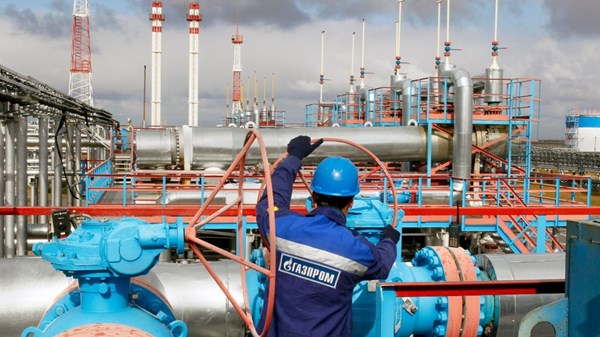Russia to construct gas pipeline under the Black Sea
Russian company Gazprom, Italian company Edison and Greek company DEPA have signed an agreement to transport gas from Russia to Europe via a route under the Black Sea, as stated in a press release by Gazprom.
The Russian company emphasized that the parties were interested in natural gas supply routes from Russia to Greece, as well as from Greece to Italy. The results of work carried out by Edison and DEPA under the ITGI Poseidon project will be used “to the fullest extent” for these purposes.
Marc Benayoun, the CEO of Edison, added that the potential new supply route will be implemented according to EU requirements. The route will increase the reliability of a gas supply in Italy, and thereby strengthen its role as a major gas hub of southern Europe.
The ITGI (Interconnector Turkey-Greece-Italy) gas pipeline is part of the Southern Gas Corridor Project. The pipeline will pass from Turkey through to Greece and Italy. The Poseidon project, which is the construction of the ITGI offshore gas pipeline, will run under the Ionian Sea. The pipeline will also connect with the gas transportation systems of Greece and Italy.
The agreement on the construction of the Poseidon pipeline was signed by Edison and DEPA in 2002. In 2008, the total cost of the project was estimated at €1 billion, while the cost of the construction of the offshore gas pipeline was €350 billion. The section of the Turkey-Greece pipeline was completed in 2007. At that time, the future of the Greek-Italian pipeline was unknown.
On the 26th of January, Gazprom reported that the South Stream Project contract had been terminated. This pipeline, with a capacity of 63 billion cubic meters a year, would have gone across the Black Sea into Bulgaria and then eventually into Italy and Austria. Construction was suspended by Russia in 2014. The uncertainty of Bulgaria’s involvement in the project was cited as the reason for the suspension.
This made way for the construction of the Turkish pipeline in Turkey. However, negotiations for this project were abandoned in 2015 after the beginning of the conflict between Moscow and Ankara.
